Early comic book superheroes were the creations of those who weren’t accepted and desperately desired to be like mainstream America. Thus comic creators of the Golden Age imprinted on images to embody “real” America hence why Batman is a millionaire and Superman grew up as a farmer. As our American culture has changed, so too has the superhero audience and our notion of what constitutes a hero. This may be most abundantly clear in the prominence of not just female characters but women themselves in significant roles within the entertainment industry in conjunction with this current wave of feminism in the last decade.
DC Comics has certainly taken steps to cater beyond the typical male demographic in publishing as well as other media exemplified by the current DC Super Hero Girls cartoon. A reinterpretation of the already established and successful brand, the animated series debuted last month on Cartoon Network and has already garnered acclaim and a devoted fandom. Considering the involvement of developer/producer Lauren Faust, probably best known for revitalizing the My Little Pony franchise and helping to usher in the Brony community, it’s not a complete surprise. At WonderCon, I had the opportunity to talk with Faust and others in the DC Super Hero Girls cast and crew about, among many things, creating and fostering inclusivity through this animated series.
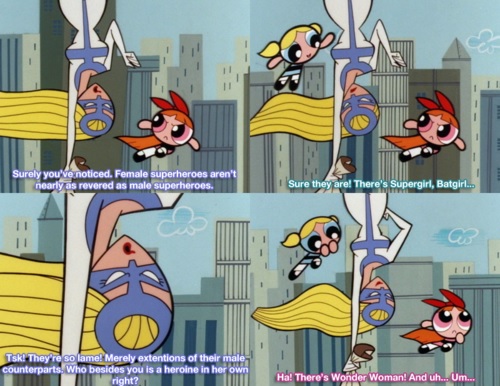
A comic book fan since childhood when she used to sneak into her older brother’s room and read his comics with him none the wiser, Faust cites Wonder Woman as one of her all-time favorites. Faust’s views on media designed for young girls are definitely showcased throughout her animation career such as The Powerpuff Girls. Funny enough one of the earliest PPG episodes Faust worked on entitled “Equal Fights” practically prophesied Faust’s involvement with DC’s pantheon. In the episode, the Girls are manipulated by a feminist villain (appropriately named Femme Fatale) into believing that with the exception of Wonder Woman, female superheroes are merely regarded as inferior distaff versions of their male counterparts.
The episode speaks volumes in today’s climate, but it also illustrates how much our culture has grown. “What has changed is that in the years since then, especially recently in the last several years, girls have gotten much more in comic books and superheroes,” described Faust. “There’s just somehow been a surge of girls interest[ed] in superheroes. They’ve always been there but now there’s finally enough that the people who create content are taking notice.”
That’s not to say it doesn’t remain an uphill battle. An executive’s outdated beliefs questioning the profitability of female characters led to blocking the production of Black Widow merchandise for Marvel’s Avengers sequel. “It’s just kind of crazy that people would think that,” said Grey Griffin the voice of Wonder Woman in DCSHG. “It doesn’t matter how many successes we have, we still have to go up against that. So hopefully this [show] will really break down some barriers.”
Even for those who aren’t enmeshed in the world of superheroes, DCSHG has been a labor of love. Such is the case for supervising producer Jennifer Kluska, who first met Faust during their time on a project for Sony Animation a few years ago. “I was into comics a little bit as a kid but never picked up in a big way for superheroes,” admitted Kluska. “So this show has really been a baptism of comics culture for me. I think what I like most about it as a result are the ridiculous canon stories that are really fun to play with.” Whether they’re seasoned comic readers or not, it’s evident everyone involved has worked their magic.
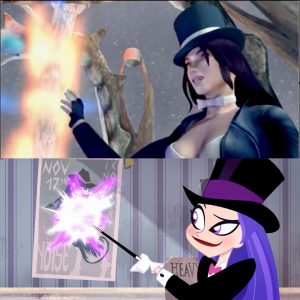
For the voice performers themselves, some are already familiar with these superheroes having played them in past projects. Kari Wahlgren, for instance, first voiced the mystical and fabulous Zatanna in the 2006 Justice League Heroes video game. Since coming onto DCSHG Wahlgren has done her due diligence researching the character by reading writer Paul Dini’s comic run. Zatanna in the show is presented as a performer/theater geek which parallels Wahlgren’s own high school experience in some respects. “I got bullied a little bit for being a drama kid and being into singing,” said Wahlgren. “But you find what you’re excited about. And then you find your tribe. You find the people who also like those things or support you and build you up. And you get through it. I like [that] Zatanna is the same way. She finds a good group and they support each other.”
In addition to Zatanna, Wahlgren also voices Carol Ferris/Star Sapphire, a villainous crazy ex-girlfriend that would give Glenn Close in Fatal Attraction a run for her money. As I noted in an earlier piece, Wahlgren voiced a non-powered Carol Ferris in the second season of Young Justice. Interestingly, Wahlgren revealed that before the cancelation of YJ, there were plans to feature Carol Ferris in later episodes. Whether or not we’ll see Carol Ferris again in YJ now that the cult show is back on the DC Universe streaming platform, Wahlgren is having the time of her life revisiting a radically bonkers version of the character.
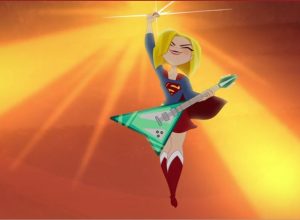
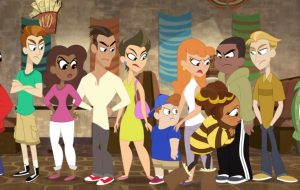
The commitment of the show creators to representing diversity can also be seen in Jessica Cruz, the first female Green Lantern from Earth who happens to be Hispanic. Cruz, voiced by actress Myrna Velasco, is different from her DCSHG teammates in that she is a fairly new face in the DC Universe having debuted in the comics only a few years ago. Nevertheless, in that time Cruz’s popularity has skyrocketed. Incidentally actress Cristina Miliza, who has the honor of being the first person to portray Jessica Cruz outside of comics, voices the villain Poison Ivy in the DCSHG cartoon. So you can imagine what was going through Velasco’s mind when she first met Milizia in person. “I was kind of expecting there be a rivalry or something like we bust out our rings,” recounted Velasco. “That was the first time I ever met her and she just swept me into this huge hug and she said, ‘I’m a Jessica Cruz too!’ It was just super wonderful to meet her that way knowing that we have this legacy together. I love her!” It’s a testament to the unifying power of superheroes that a genuine friendship blossomed between Milizia and Velasco. In fact, they watched the DC Super Hero Girls premiere movie together and hope to coordinate a Jessica Cruz twin cosplay in the not too distant future.
https://twitter.com/MiliziaCristina/status/1104487560556949504
Although she voices Wonder Woman, usually associated with American patriotism, actress Grey Griffin’s own Mexican heritage has influenced her portrayal of the Amazon warrior. In the show, Wonder Woman’s secret identity is foreign exchange student Diana Prince as she adjusts to living in the world of man—a classic fish out of water story. It’s an experience Griffin can relate to growing up with her Mexican grandmother and bringing Mexican dishes like tamales to lunch to the bewilderment of her classmates in the cafeteria.
Since DCSHG is primarily set in city of Metropolis (better known as Superman’s hometown) art director Valerio Ventura sought to keep the look of the city close to reality. Nonetheless, the urban environment of the show retains an innate beauty since Ventura believes it befits how teenagers see the world. It’s not surprising to hear that Ventura took inspiration from real-life cities. “I was looking at New York City I was looking at Dubai. The way the buildings are so tall and epic,” said Ventura. “I wanted the style to pay homage more to a city like New York with that kind of epic height. When it comes to going down to the street level we stayed with a New York feel.” I’m very much reminded of the goal of current Superman writer Brian Michael Bendis to develop and define Metropolis with its own unique identity comparable to what others have done for Batman’s home turf of Gotham City. Ventura aptly contrasted Metropolis and Gotham in that while Metropolis has barbwires, Gotham has razor wires.
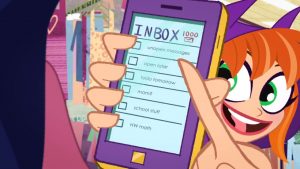
I have to commend not only Faust but everyone in DC Super Hero Girls for producing an animated series that inspires and instills a sense of belonging in a younger generation. In explaining the importance of representation the late/great Dwayne McDuffie said, “You don’t feel as real if you don’t see yourself reflected in the media.” It’s a sentiment echoed by the DCSHG cast. “Superheroes matter because they are the metaphor to our real life existence. They’re the people we identify when we want to be strong. When we feel we need to be strong. And if you don’t see the type of person you are in that strength then you stop believing that you’re capable,” said Myrna Velasco. Ultimately Kimberly Brooks described the achievement of DC Super Hero Girls best, “It’s empowering to change basically what people’s opinions are and to be a part of that. And I think just overall in general for the show there’s a lot of stereotypes being broken.”


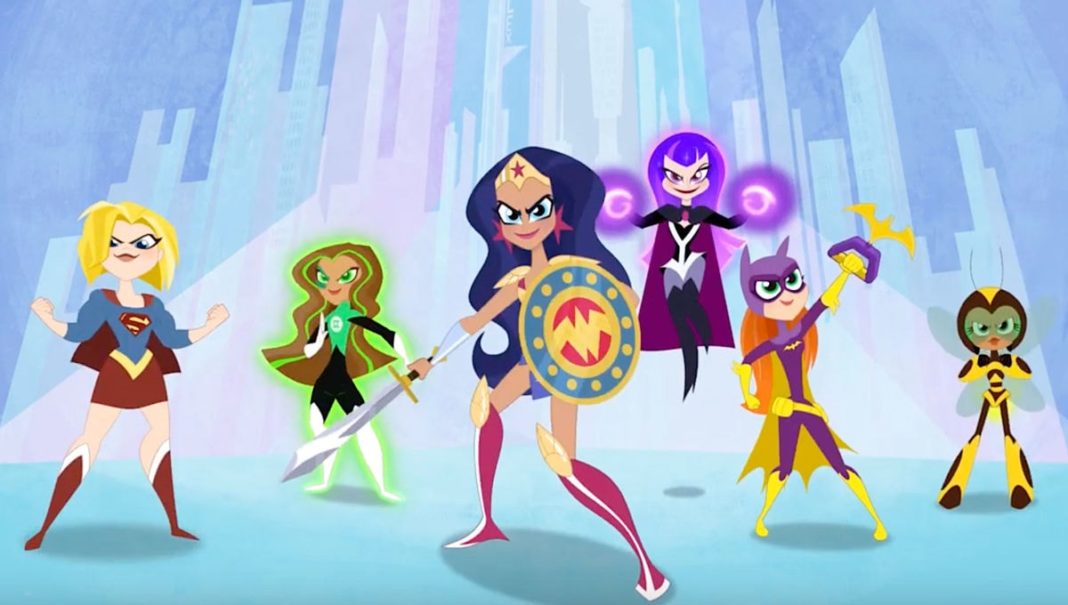
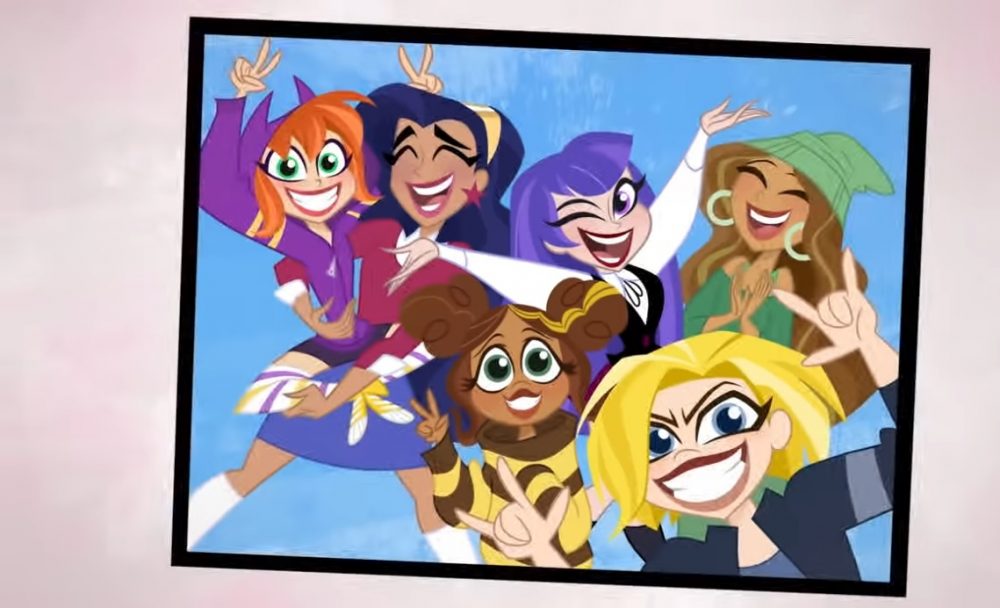
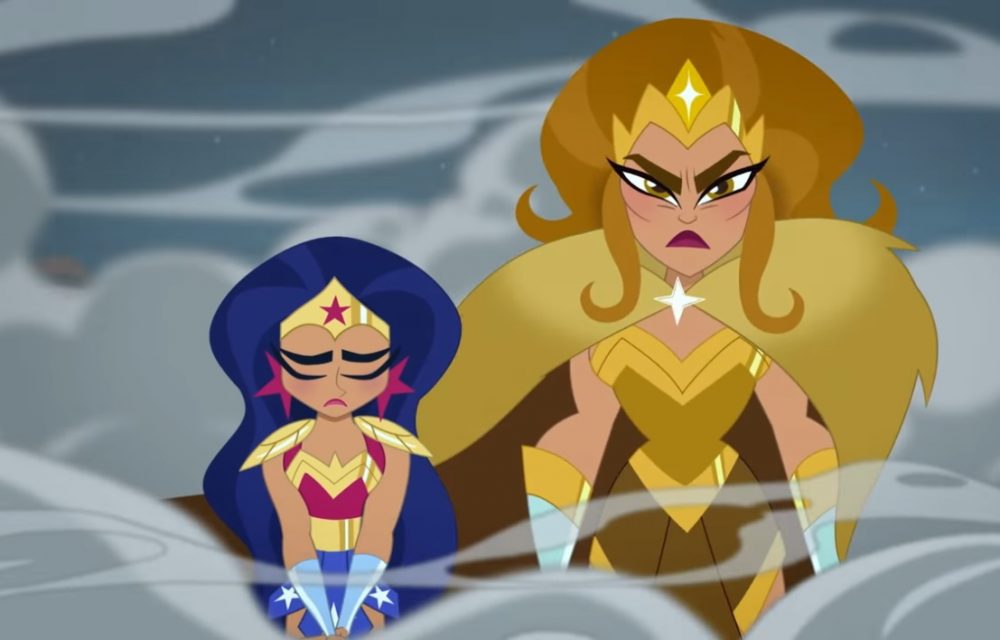
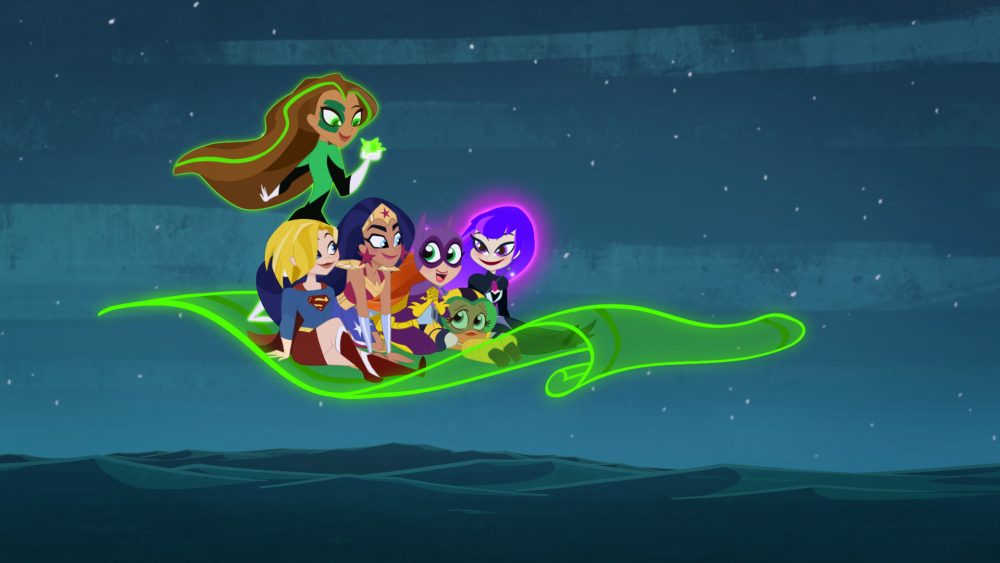

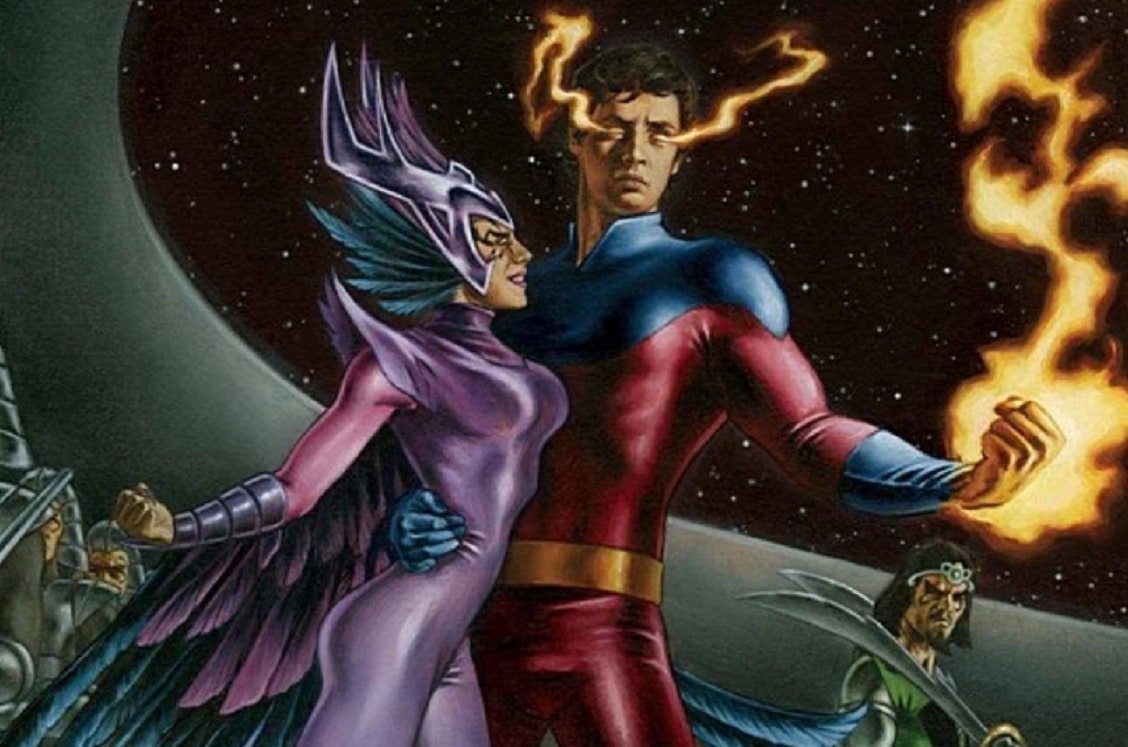
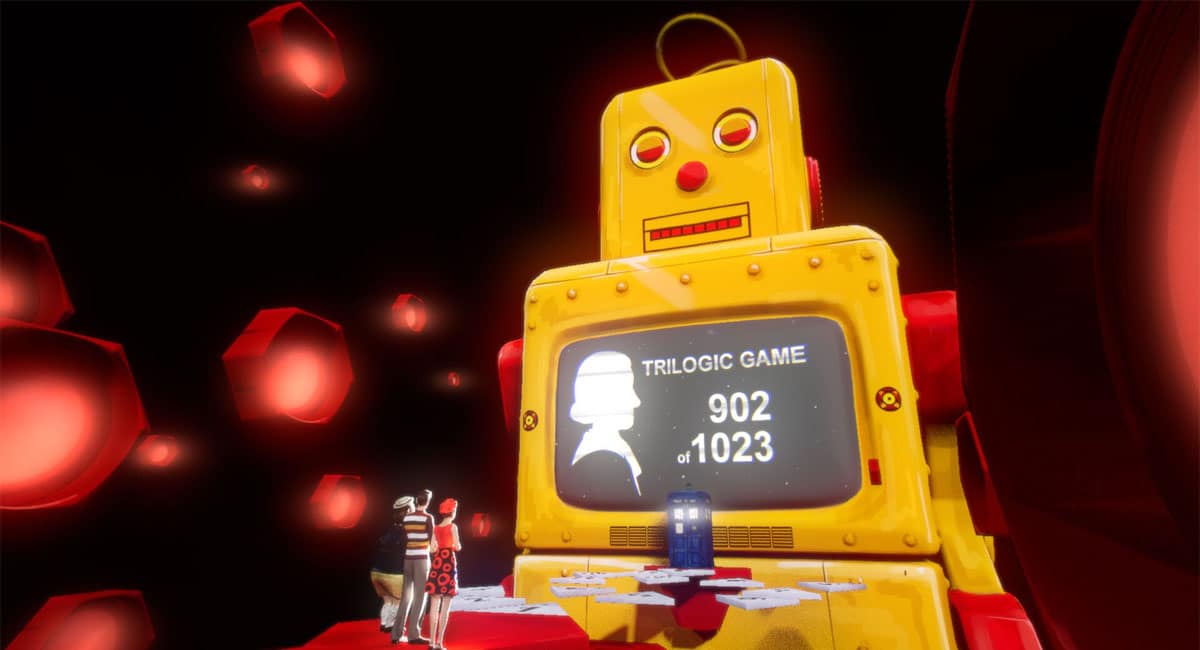


Comments are closed.